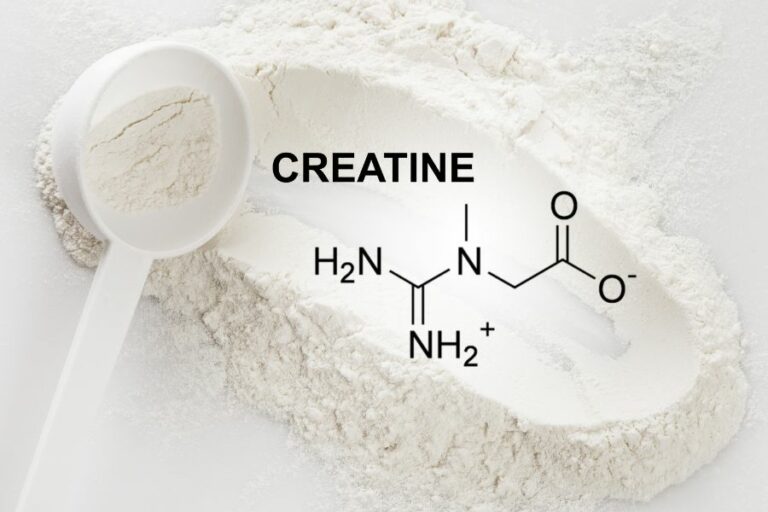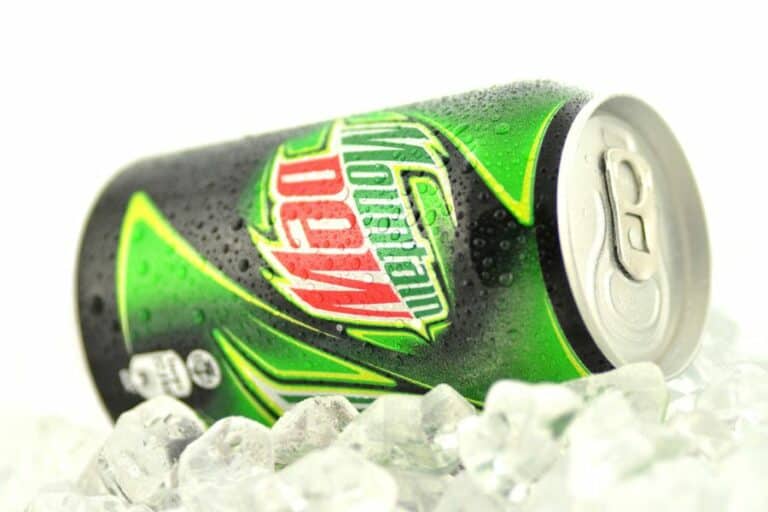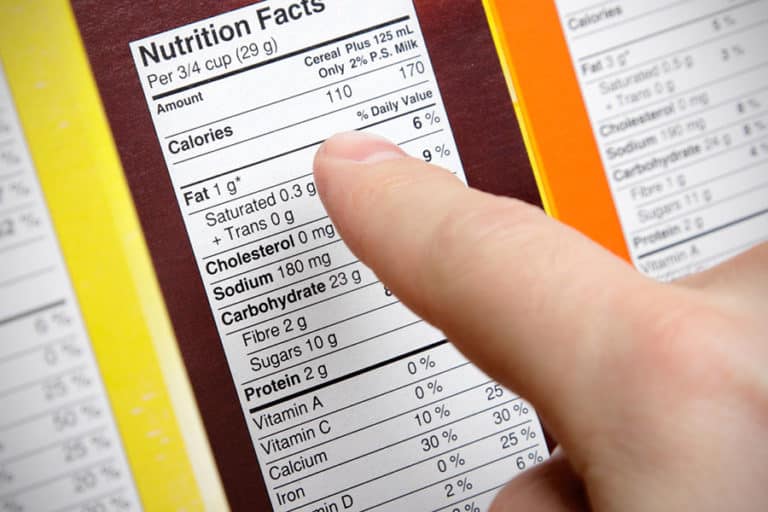Does Creatine Make You Bloated? Busting The Myths

Creatine And Bloating | Tips | Creatine And Weight Gain | FAQs
A popular dietary supplement in the world of sports nutrition, creatine plays a key role in energy production in the body.
While creatine is generally safe for consumption, there are concerns about creatine-related bloating and weight gain.
So, does creatine make you bloated, or is it just a baseless myth?
Does creatine make you bloated?
No, creatine does not typically cause bloating under normal circumstances. While bloating and gastrointestinal discomfort are believed to be the common side effects of creatine supplements, not everyone experiences them.
The only individuals who may experience some bloating from creatine are those who undergo a loading phase, which is not necessary for most people.
Alternatively, people consuming the recommended dose of 3-5 grams daily are unlikely to notice bloating or changes in body weight.
What exactly is creatine bloating?
Creatine bloating refers to the perception of increased abdominal fullness or discomfort after creatine supplementation.
It is often attributed to water retention in the skeletal muscles, which is a well-known side-effect of creatine supplements.
In the short term, creatine bloating is generally cosmetic and not a significant concern.
While creatine supplements may cause some localized water retention in the muscles, resulting in a perception of bloating or discomfort for some individuals, it is generally temporary and not visually apparent in other areas of the body.
It’s also important to remember that individual responses to creatine can vary from person to person.
The connection between Creatine and Water Retention
Research suggests [1]National Library of Medicine: Creatine Supplementation Increases Total Body Water Without Altering Fluid Distribution that creatine can indeed cause an increase in water content within the muscle cells, known as intracellular water retention.
This occurs when creatine draws water into the muscles to support its function in energy production during high-intensity exercise.
However, this water retention is localized within the muscles and does not typically cause visible bloating or swelling in other areas of the body.
How Does Creatine Bloating Feel?
The bloating sensations associated with traditional creatine supplementation may manifest themselves in the following forms:
- Mild Discomfort: Some individuals may experience mild discomfort or a feeling of fullness in the abdominal area after taking creatine.
- Increased Urination: Due to the water-retaining effect of creatine, some users may notice increased urination as the body tries to regulate the water balance.
- No Visible Swelling: It’s important to note that creatine bloating does not typically cause visible swelling or puffiness in the face or other parts of the body.
How Long Does Creatine Bloating Last?
The duration of creatine bloating can vary among individuals, but it is generally short-lived.
Any bloating or discomfort associated with creatine supplements tends to resolve within the first few days to a week of starting creatine use. This is because the body gradually adjusts to the increased water content in the muscles.
Tips to avoid/stop creatine bloating
There are several evidence-based strategies to avoid or stop creatine bloating. Read through the following guidelines in order to avoid creatine-induced bloating:
1. Skip the loading phase
The concept of a “loading phase” involves taking a higher initial dose of creatine for a short period of time(20-25 grams for the first 5-7 days) to quickly saturate the muscles with creatine. This is generally followed by a lower “maintenance dose” to maintain the saturation.
Creatine loading may increase the risk of bloating and gastrointestinal discomfort compared to starting with a maintenance dose.
Skipping the loading phase and starting with the recommended maintenance dosage can help minimize the chances of experiencing bloating.
2. Monitor the dosage
It is crucial to follow the recommended dosage and usage guidelines for creatine consumption.
Typically, a standard daily dosage of 3-5 grams of creatine monohydrate is recommended for most individuals.
Taking higher doses or using creatine for prolonged periods without breaks can increase the risk of bloating and other side effects.
3. Quality and purity of creatine supplements
The quality and purity of creatine supplements can also play a role in bloating. Low-quality creatine supplements may contain contaminants that can cause gastrointestinal discomfort, including bloating.
Learn to read the nutrient labels of your creatine supplement in order to ascertain the quality and contents of the product you are consuming. This will help you avoid creatine products that are low in purity.
4. Maintain proper hydration
Proper hydration is crucial in the context of creatine supplementation, as it can impact the occurrence of bloating.
When you start supplementing, increase your intake of water as well. You may need to consume close to 80-100 ml more water for every gram of creatine supplement you consume.
If the body is not properly hydrated, the osmotic balance between the muscles and surrounding tissues may be disrupted. This can result in an influx of water into the muscles, potentially leading to bloating.
Moreover, creatine supplementation may alter the body’s electrolyte balance, particularly the balance of sodium and water. Imbalances in electrolytes due to inadequate hydration can potentially contribute to bloating.
Creatine draws water into the muscles to support its performance-enhancing effects. Therefore, it is important to drink sufficient water throughout the day, when using creatine supplements.
5. Diet
Diet plays a significant role in managing creatine bloating. A well-balanced diet, along with optimal hydration, can help regulate digestion. This can reduce the chances of gastrointestinal bloating while you are on a supplementation program.
Avoiding excessive consumption of processed foods, excessive carbohydrates, high-sodium foods, and carbonated beverages can also reduce the risk of the same.
6. Other types of creatine with reduced bloating potential
There are various types of creatine supplements available in the market, including creatine monohydrate [2]ScienceDirect: Creatine Monohydrate, creatine hydrochloride, and creatine ethyl ester.
While creatine monohydrate is the most commonly used and researched form of creatine, some alternative forms may have reduced bloating potential.
Creatine hydrochloride (HCL) and buffered creatine are suggested to have improved solubility and absorption, potentially reducing the risk of bloating compared to creatine monohydrate.
7. Consultation
Some individuals with pre-existing medical conditions, such as kidney or liver disease, may be more susceptible to bloating or other gastrointestinal issues from creatine supplementation.
If you experience persistent bloating or other adverse effects while using creatine, it is essential to consult a healthcare professional or a qualified sports nutritionist.
Personalized recommendations based on your individual needs, health status, and current supplement regimen can help you effectively avoid creatine bloating.
Creatine and weight gain
It’s worth noting that the weight gain associated with creatine supplements is primarily due to increased water content in the muscles, not actual fat gain. This weight gain is generally temporary and typically resolves once the supplementation is discontinued.
In fact, research has shown that long-term consumption of creatine supplements does not significantly impact body fat levels [3]PubMed: Effects of creatine loading and prolonged creatine supplementation on body composition, fuel selection, sprint and endurance performance in humans.
Short-term impact on weight
The short-term weight gain associated with creatine supplements is largely due to increased water retention in the muscles.
This short-term weight gain can range from a few hundred grams to several pounds, depending on the individual and the dosage of creatine used.
It’s important to note that this increase in weight is temporary and typically resolves once creatine supplements are discontinued or after a loading phase is completed.
Long-term impact on weight
While creatine has been shown to potentially increase muscle mass and strength with regular use over a longer period of time, it does not necessarily lead to significant long-term weight gain in the form of fat.
Some studies have shown that long-term creatine supplementation may lead to a modest increase in body weight due to increased muscle mass, but this is generally not associated with significant fat gain.
Conclusion
Creatine supplementation can be an effective way to increase muscle mass and strength when done safely and properly. It’s important to take steps to avoid or reduce the potential risk of bloating associated with its use.
Remember that any short-term weight gain is typically temporary and not associated with significant fat gain. Consult a healthcare professional or qualified sports nutritionist to provide personalized recommendations on how to use creatine safely and effectively.
FAQs
We have put together a few more frequently asked questions about creatine supplements to answer any further doubts or questions you may have regarding the same:
Does creatine give you energy?
Yes, creatine can help increase energy levels by replenishing ATP (adenosine triphosphate), the body’s main source of energy for muscle contractions.
Will I gain weight taking creatine?
Creatine supplementation may cause temporary weight gain due to increased water retention in muscles. However, since creatine is generally a zero-calorie supplement, it is highly unlikely to result in any fat gain.
Which creatine doesn’t make you bloated?
Alternative forms of creatine, such as creatine hydrochloride (HCL) or buffered creatine, are suggested to have reduced bloating potential compared to creatine monohydrate.
What is the recommended dosage for creatine supplements?
The recommended dosage for most individuals is 3-5 grams of creatine monohydrate per day, but it’s important to follow dosage guidelines provided by reputable sources or consult a healthcare professional for personalized recommendations.
References
| ↑1 | National Library of Medicine: Creatine Supplementation Increases Total Body Water Without Altering Fluid Distribution |
|---|---|
| ↑2 | ScienceDirect: Creatine Monohydrate |
| ↑3 | PubMed: Effects of creatine loading and prolonged creatine supplementation on body composition, fuel selection, sprint and endurance performance in humans |







